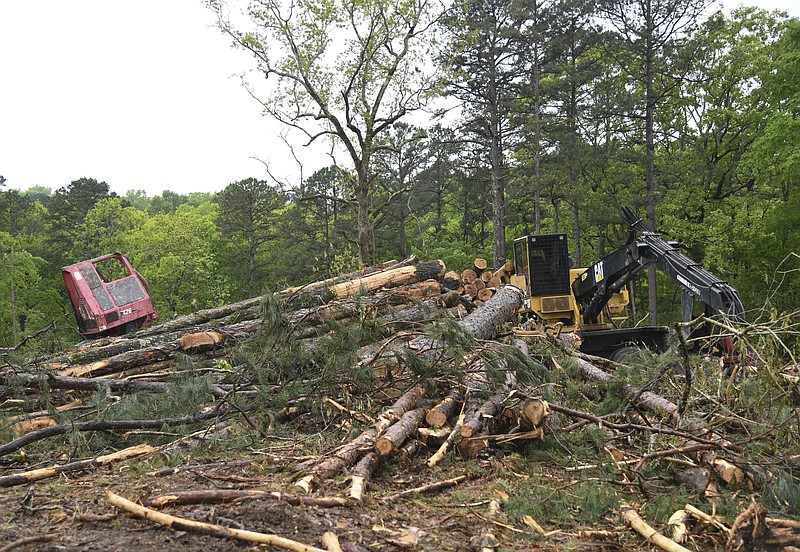The Colorado developer who owns more than 1,600 lots in Diamondhead agreed to pay the state a $5,400 civil penalty for violating environmental protection laws.
The fine was part of the consent administrative order Omni Home Builders entered into with the state Division of Environmental Quality last month. Failing to abide by the agreement subjects Omni to additional fines of up to $1,000 a day.
The Garland County tax collector's office said Omni has yet to pay 2020 real estate taxes that were due in October. It owes $64,174 in taxes, penalties and interest on more than 900 of its Diamondhead parcels. Omni CEO Mark Lane told The Sentinel-Record in December the nonpayment was the result of an accounting department "oversight."
"Now that I've brought it to their attention I'm sure it will be paid here shortly," he said. "It's just a matter of getting someone off their elbow at the home office so they can cut a check."
Lane said Monday that the unpaid taxes were "being taken care of."
The civil penalty he agreed to is a fraction of the $9,850 fine DEQ proposed in November 2020. The $5,400 will be reduced by half if payment is submitted within 20 days of Omni's receipt of the consent administrative order.
Omni came under scrutiny in late 2019 after numerous complaints about its logging in the gated community were lodged with DEQ. A subsequent inspection determined Omni's activities required a stormwater construction general permit. The state said Omni's failure to obtain a permit violated the Arkansas Water and Air Pollution Control Act and rules governing the state's administration of the National Pollutant Discharge Elimination System.
The CAO said the activities had the potential to discharge stormwater into the Lake Catherine watershed, but Omni maintained its logging didn't require a permit under the Clean Water Act. The federal statute exempts timber harvesting.
Lane told the newspaper in November 2020 that "select cutting" was done to give builders a better sense of the terrain.
"We are the developers at Diamondhead, and we have a right to select cut the land," he said. "There is no commercial cutting or commercial logging. It's just a developer select cutting enough trees on a lot so a builder can come in and make a purchase decision. That's pure and simple what it is."
Numerous complaints were lodged after the state issued the stormwater construction permit in March 2020. Violations found during a subsequent inspection included failure to maintain an up-to-date stormwater pollution prevention plan, keep dirt from migrating off-site and have sediment control devices in place.
Inspections also revealed unpermitted in-stream logging.
More violations were found after a July 2020 inspection, including failing to keep sediment and debris out of drainage areas along Plum Hollow Boulevard and Independence Drive. Omni cited the exemption for timber harvesting in its August 2020 response, telling DEQ it was logging areas where development had ceased for several decades.
Lane referred the newspaper to his attorneys when asked for comment on the CAO. The attorney that negotiated the agreement hadn't responded by presstime.
James Rankin III, the attorney representing Omni in the lawsuit it filed against the Diamondhead Property Owner's Association, said Monday that both sides were working to complete settlement talks Division 1 Circuit Judge Ralph Ohm ordered last month. He signed off on their joint motion to continue the trial scheduled to begin later this summer.
Former Division 1 Judge John Homer Wright's December 2020 order granted the POA's motion to declare Omni not in good POA standing for any of its lots with unpaid dues.
The POA argued a 2008 agreement with the company that sold more than 1,300 lots to Omni for $2.4 million in July 2018 required Omni to incrementally convert the parcels into dues-paying lots. Omni argued the POA was in breach of its duties and obligations by failing to recognize Omni as a POA member.
